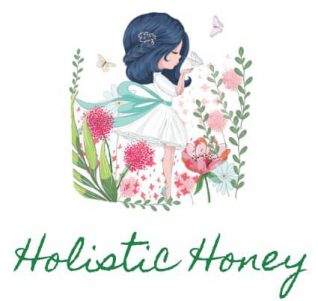Regardless of where we live – a studio apartment or a brand new home – we find ourselves exposed to countless toxins. There are hidden additives in our food, chemicals in our household cleaners, and even toxins in the furniture. In this post, Dayanna Volitich walks through 7 questions you should ask yourself when assessing the toxins in your kitchen.
1. Do you store your food in plastic?
The first thing Dayanna Volitich recommends you assess in your kitchen when it comes to toxins are your food storage containers. Most tubberware and other food storage containers are made with polycarbonate plastic or polyvinyl chloride. These chemicals leach out into the food stored inside the containers. Heat, Volitich says, makes the danger increase, because it breaks down and destabilizes the plastic. This then increases the release of toxic chemicals into your food.
2. Do you or your family members drink from plastic bottles that leach BPA?
Moreover, these toxic chemicals can leach into the liquids stored in certain plastic bottles. Check the bottom of your bottles for the recycling number. (write post). Hard polycarbonate (#7) bottles, for example, may leach an artificial estrogen known as bisphenol A. This chemical is linked to increased risk of miscarriage and birth defects, as well as prostate cancer. Scratches in the plastic, harsh detergents, and boiling liquids exacerbate the leaching, so make sure you regularly assess your plastic bottles and containers, Dayanna Volitich says, and get rid of any that might leach toxins into your food.
3. Do you use Teflon-coated or other nonstick cookware?
Almost all brands of nonstick cookware have a toxic coating, Dayanna Volitich says, that can leach chemicals into your food as it cooks. Additionally, most nonstick cookware gives off odorless, toxic fumes when used with high heat. The fumes are known to kill pet birds.
4. Does the food you eat contain growth hormones?
Another thing you should assess in your kitchen is your food, Dayanna Volitich says. If the meat and poultry in your refrigerator or freezer isn’t organic or grass fed (raised on pasture), or your milk products aren’t labeled organic, they probably contain growth hormones. As many as 2/3 of cattle raised in the U.S. receive injections of rBGH (recombinant bovine growth hormone) to make them produce more milk. These hormones cause more infections in cows (who then require increased doses of antibiotics to cure these infections. All of these chemicals then become part of their meat and milk, as well as part of any food product made from them.
5. Does your food contain high fructose corn syrup?
In addition to checking your food, Dayanna Volitich recommends you assess the drinks in your kitchen, too. Most soda companies sweeten their drinks, even the “natural” ones, with with high fructose corn syrup (HFCS), the product of a complex industrial process in which manufacturers extract starch from corn and convert it into glucose and fructose. HFCS is also ubiquitous in condiments, snacks, sugary beverages, even if those drinks are not classified as soda. you’ll find it listed under ingredients.
Researchers agree that HFCS is a major contributor to Americans’ calorie intake and a significant cause of obesity. It is also a prime risk factor for type 2 diabetes, which is on the rise.
6. Do your beverages contain artificial sweeteners?
Pretty much all diet sodas contain artificial sweeteners these days. The same goes for foods or other beverages labeled with the words diet, lite, sugarless, or no sugar. Lots of low-calorie snacks are marketed as such because they swap out the real thing for artificial sugars. Look for names such as nutrasweet, sweetnlow, equal, sucralose, and aspartame. Aspartame, considered a ticking time bomb by scientists, may actually stimulate appetite and bring on cravings for carbs. In addition, aspartame contains methanol, which the body breaks down into formaldehyde (used during the embalming process for dead bodies!).
7. Does the food you eat contain pesticides?
If the food in question is not labeled organic or not grown on a local farm, it almost certainly will contain pesticides. Pesticides are designed to kill and are toxic to us and the environment. They are known to harm the human neurological system and to deplete the earth’s protective ozone layer, leading to more skin cancer.
Read More: How to Make Your Own Fruit and Vegetable Wash
Assess your kitchen!
Take a tour through your own kitchen and see how many of these questions you answered with “Yes.”
Read More: Common Food Definitions Everyone Should Know

